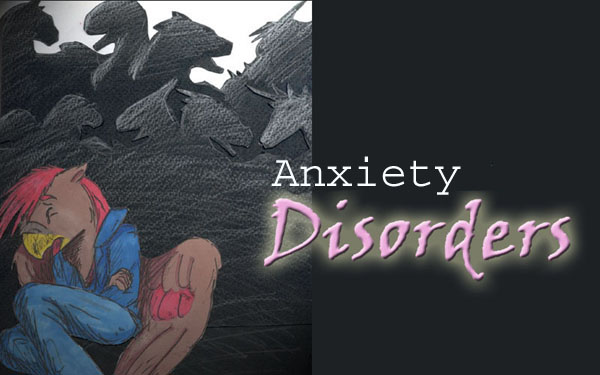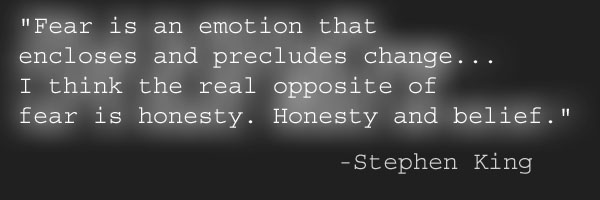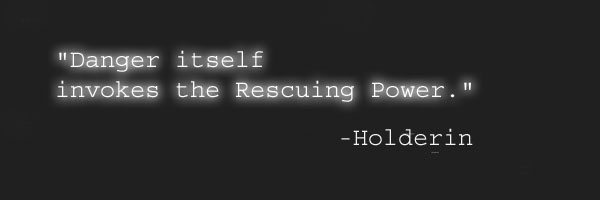|
| In-site navigation |

|
Back to Home
|
| About the Artist |
 |
Art this page
copyright M. "Poseidon" Evripidou
|
| Additional Links |
 |
To be announced
|


|
|

|
|
|
|
Anxiety is a restrictive, debilitating emotion. It has a psychological component and a physiological component. The psychological component is worried thoughts and catastrophizing. The physiological component is the physical symptoms of anxiety…sweaty palms, tightness in the chest, shallow breathing.
Sometimes anxiety is focused on something in particular…like worrying about an exam in school. Sometimes anxiety is free-floating…as if there is nothing specific to worry about, but the anxiety comes anyway. In either case, anxiety is about the perception of danger. When you’re anxious, you perceive a threat of some kind, even if the threat is not conscious. The threat can be a clear and present danger, like a rattlesnake inside your camping tent, or it can be more existential, like the fear that you won’t be able to make it in school or at work.
Sometimes anxiety is the ongoing legacy of trauma. In this case, anxiety may be part of PTSD (Post-Traumatic Stress Disorder), which sometimes happens to people who have suffered extreme trauma. People with PTSD may benefit from certain kinds of professional treatment and peer support. There is a lot of this kind of trauma around these days, because of terrorist attacks and instability in the world. Anxiety about these things is commonplace, but should not take over your life.
Just like there are many different reasons for anxiety, the feeling itself can take many forms. Anxiety can range from a low-key sense of foreboding to extreme panic. Anxiety in its most severe form is called a panic attack. Panic attacks are very acute phases of anxiety, with rapid heartbeat, difficulty breathing, and other physical signs. Sometimes panic attacks can look like (and feel like) a heart attack.
 Usually anxiety subsides before it reaches the panic attack stage. Even when a person has a panic attack, the attack only lasts for seconds. Anxiety comes in waves. The body is not built to experience extreme anxiety for a long period of time…it’s built for the fight-or-flight response. The fight-or-flight response is an ancient evolutionary trait in all higher animals. In times of extreme anxiety, the body revs up with additional energy in case you need to either run away or fight to defend yourself. In modern life, in most cases, we don’t have to run away or fight to defend ourselves very often. But we still have the biologically coded fight-or-flight response.
Usually anxiety subsides before it reaches the panic attack stage. Even when a person has a panic attack, the attack only lasts for seconds. Anxiety comes in waves. The body is not built to experience extreme anxiety for a long period of time…it’s built for the fight-or-flight response. The fight-or-flight response is an ancient evolutionary trait in all higher animals. In times of extreme anxiety, the body revs up with additional energy in case you need to either run away or fight to defend yourself. In modern life, in most cases, we don’t have to run away or fight to defend ourselves very often. But we still have the biologically coded fight-or-flight response.
I like Stephen King’s take on anxiety because of the way he calls it “an emotion that encloses and precludes change.” Anxiety causes you to freeze in your tracks, to shut down and escape, rather than to explore something or change. That’s a useful reaction when it helps you to avoid danger. But it’s not useful when it chronically keeps you from making changes in life, or when it keeps you from growing. Fear (and anxiety) makes us want to do anything to avoid the danger…even if it means self-deception or deceiving others. That’s why I agree that the opposite of fear is honesty and belief.
 How can we deal with anxiety? With an anxiolitic medication like Xanax? The desire to medicate anxiety away is often the first knee-jerk response in our civilization. As a society were are afflicted with low tolerance for painful feelings…psychologists call this affect tolerance. Developing affect tolerance means being able to weather strong feelings: not surrendering to them, but accepting the message that the feelings bear.
How can we deal with anxiety? With an anxiolitic medication like Xanax? The desire to medicate anxiety away is often the first knee-jerk response in our civilization. As a society were are afflicted with low tolerance for painful feelings…psychologists call this affect tolerance. Developing affect tolerance means being able to weather strong feelings: not surrendering to them, but accepting the message that the feelings bear.
So we do not want to just “surrender” to feelings, or to become overwhelmed by them. To become overwhelmed by depression is to give up hope and to despair. To become overwhelmed by anxiety is to panic. What does panic mean? The word comes from the name of the Greek god named Pan, who played flutes that had the power to mesmerize people. To panic is to become seduced by the fluting of Pan, and to follow Pan blindly like the rats scampering after the Pied Piper from the city of Hamlin.
Affect tolerance is one of the most important psychological disciplines, but is often overlooked. This is as true with depression as it is with anxiety. Too often we treat depression as a “chemical imbalance” that must be corrected with medications.
By the way, sometimes depression (and anxiety) are indeed best treated with medications. How do we know when this is the case? The decision is best left to a doctor (psychologist, psychiatrist, or physician). But in general, we look to medications when the anxiety or depression is so debilitating that it becomes dangerous, or a person is no longer able to function at all. The problem comes when medications are the first, last, and only line of defense against painful feelings. This way of thinking ensures that no one learns to develop any affect tolerance at all.
So although we have recourse these days to many wonderful and effective drugs, it remains important to develop affect tolerance. Anxiety is one of the more difficult feelings to tolerate, along with anger, and along with depression. However, some people have trouble tolerating happiness too! How can that be? Now we come to another one of the world’s great truths: being unable to tolerate one kind of emotion often makes it difficult to tolerate other kinds of emotion. If we cannot bear anxiety, or sadness, or anger, than we often cannot bear happiness or love or intimacy either. For this reason, some people become withdrawn and brittle, unable to feel anything. Addicts and alcoholics are particularly averse to strong feelings…and they use drugs or booze to make sure they don’t feel anything other than a nice buzz.
But Holderin says “Danger itself invokes the Rescuing Power.” Knowing this is a protection against anxiety. The thing that you feel threatens you contains the seeds of its own resolution. Keep your eyes on the thing that threatens you. Do not turn from it. In the meantime, there are some specific suggestions for dealing with anxiety itself.
| |